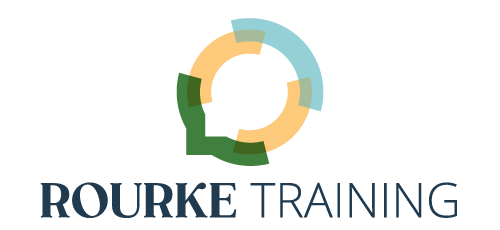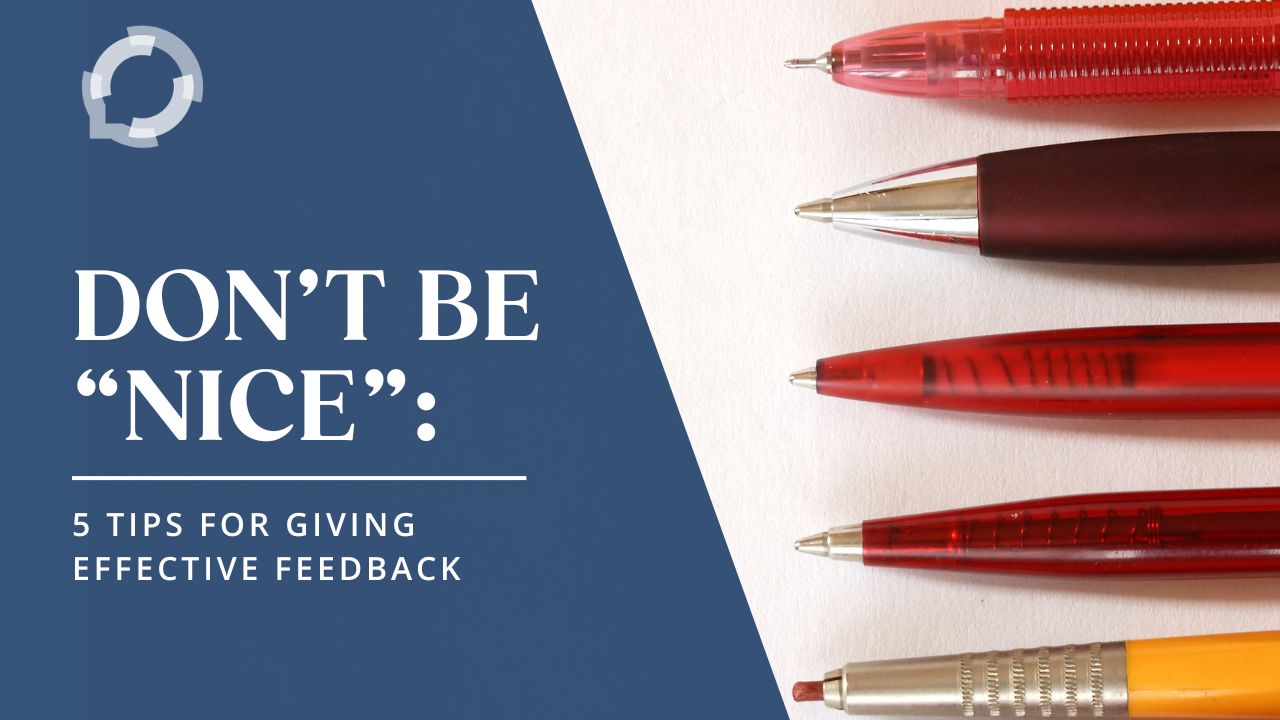If you can’t say something nice about a person, don’t say anything at all.
Sounds familiar, doesn’t it? Many of us, especially women, were raised to play nice with others. Phrases like this clamped down on gossip and we were encouraged to find something – anything – to compliment about the other person, whether or not we genuinely meant it. When this happened in a face-to-face exchange, “playing nice” could easily devolve into performative niceness. Showy expressions of flattery make everybody feel good, right? No, they don’t. They’re toxic positivity precisely because they’re formulaic, insincere, or both.
No wonder most people suck at giving useful feedback. We don’t know how to do it and few of us receive specific training. Without knowing what we’re doing, we flounder in the shallows so we don’t drown in the deeps.
I get it. When a friend or colleague asks for our feedback about something they’re working on, we’re flattered that they value our opinion. We also don’t want to hurt their feelings. Showing unfinished work to someone else takes trust, and we don’t want to risk that relationship with a hurtful remark. All too often, instead of being honest, friends and colleagues make a few small comments about surface issues or else declare that the written draft, the practice speech is “great, wouldn’t change a thing.” That might sound good, but it’s definitely not nice.
Here’s the thing: feedback like that rings hollow, and the writer/speaker doesn’t believe it anyway. The relationship you want to protect erodes instead, just a little bit, each time.
Giving authentic feedback takes practice and patience, but the writers and speakers you know will appreciate how it improves their work.
Meet Them Where They Are
Whenever I’m asked to give feedback, my first question is, “What are you looking for?” Sometimes people just want general observations. Sometimes people want really detailed comments. Either way, giving the wrong level of feedback is frustrating for both of you, thwarts the purpose, and wastes time. It’s hard to reset from that. Asking what the writer or speaker wants respects their creative process.
Knowing what the writer or speaker is looking for will help you focus your attention. Unless you’re reading just a few sentences or listening to a one minute speech, you can’t take notes on everything. By choosing what to pay attention to, you can ignore details outside of your scope.
I generally separate feedback into content and either style for writing or performance for speeches. This helps the writer or speaker deal with areas for improvement in related chunks, rather than as a long unsorted list.
Focus on Priorities
Effective feedback isn’t only a matter of taking notes on the areas the writer or speaker is concerned about and then telling them everything that falls into those buckets. It’s also about helping them to prioritize which areas to work on in order to produce a better subsequent draft.
Along with asking about what kind of feedback the person is looking for, I’ll also ask how close they are to finalizing the speech or piece of writing. Just as mathematics has an order of operations for performing calculations, known by the acronym PEDMAS, so too does feedback. There’s no point in line-editing or counting every “um” in a first draft. Likewise, something that’s almost finished is unlikely to handle major changes unless you can make a compelling case that they’re absolutely necessary.
Before sharing your feedback, rank your observations from most to least significant so you don’t overwhelm the person with everything all at once. Discuss the 3-5 issues that have the biggest effect on the writing or speech and offer to follow up regarding the remaining items. Depending on how revisions go, that second conversation might shift in emphasis or become moot altogether.
Offer to Shine a Light on Blindspots
We all have blindspots about our work, something we’re completely unaware of until someone else points it out. If you’ve been asked for feedback on XYZ, but realize that the writer or speaker also really needs to address 123, don’t ignore that additional area. That’s not “playing nice;” it’s setting them up to fail. But just because you’ve identified a significant blind spot doesn’t mean the speaker or writer is ready to absorb that information. Asking you for feedback about specific areas doesn’t grant blanket permission for feedback in all areas.
For most feedback, you can instead say something like, “I’ve noticed something I think is important beyond the areas you asked me to concentrate on. Would you like to hear it?” And then …. do as they ask. Respect their choice, even when – especially when – it’s not the choice you’d have made.
However, if the blindspot is something that will damage the writer or speaker’s credibility, you have an obligation to speak up. Perhaps they’re unintentionally using language that’s racist, sexist, etc. or perpetuating stereotypes. Perhaps they’re making a hand gesture that has a rude meaning in the audience’s cultural context. Whatever it is, be kind, be firm, be direct, and focus on the behavior, not on the person: “There’s no great way to say this, but I really need to let you know that this particular behavior is problematic because” and give a short, clear reason.
Avoid Red Ink
If you are writing feedback on a draft, avoid using red ink. Studies demonstrate a negative connection between feedback and the ink it’s written in. Dukes and Albanesi (2013) have found that students negatively change their perceptions of whether an instructor is “is nice, [there’s that word again] enthusiastic, and has rapport” when they use a red pen for comments.
Dukes and Albanesi also discuss an earlier series of studies by Rutchick, Slepian, and Ferris (2010) about the effect on the teacher of using a red pen for comments. Dukes and Albanesi note that for Rutchick, Slepian, and Ferris, the conclusion that red ink affects teachers is an even greater concern than its effect on students. In an interview with NPR about the study, Dr. Rutchick admitted he uses a red pen because “[he has] to override somehow [his] urge to be nice and kind.
Be Kind Instead of Nice
If “being nice” is primarily a surface exchange, being kind comes from your core values.
Kindness is an essential aspect of effective feedback. When you’re kind, you have empathy for the writer or speaker seeking input. You’re aware of their vulnerability regarding something important to them, of their eagerness to succeed, of their trust in you. Feedback that flows from this starting point puts the other person at the center of the conversation and considers what they can change and what they can’t.
Empathy remembers that giving feedback is not about you. It’s not a chance to show off your mastery of writing or speaking. Kindness leads to strategies to address problem areas rather than dropping bad news and moving on. This approach shows that you’re invested in the other person’s success.
How About You?
Have you asked for specific kinds of feedback, or asked your friend or colleague what kind of feedback they were looking for? Do you have any favorite techniques when evaluating someone else’s work?
Tell us in the comments.
Check Out Our YouTube Channel
The Rourke Training – Ongoing Mastery YouTube channel has a bit of something for everyone. Go there to get Kirsten’s take on examples of public speaking, as well as reflections on her entrepreneurial journey. The channel is also the home of the podcast Kirsten and Kellie produced for 5 years, Ongoing Mastery: Presenting & Speaking, which covers everything connected to continually improving your craft of being a public speaker, from interviews and mini-coaching sessions with guests to conversations between Kirsten and Kellie.
Come join us. Cheers, Kellie


